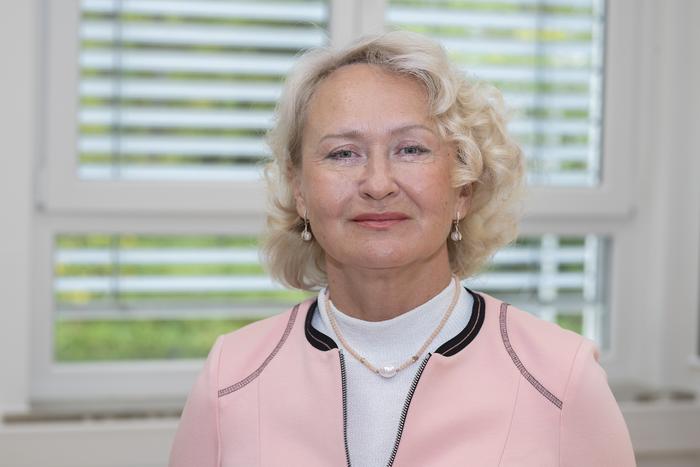Every year, over 100 million people worldwide suffer a stroke. Ischemic strokes (cerebral infarction) are the most common, but they can also occur “silently” and therefore often go undetected. This can result in serious illnesses such as dementia, depression or even suicide. In order to determine the risk of stroke at an early stage, Prof. Dr. Olga Golubnitschaja, head of the research group for 3P (predictive, preventive and personalized) medicine at the University Hospital Bonn (UKB), together with the University of Bonn and other authors from 25 institutions from 11 countries, has developed a holistic approach to health risk assessment associated with targeted prevention and individualized treatment algorithms. The research article has now been published in the international journal The EPMA Journal.

Credit: University Hospital Bonn (UKB)/R. Müller
Every year, over 100 million people worldwide suffer a stroke. Ischemic strokes (cerebral infarction) are the most common, but they can also occur “silently” and therefore often go undetected. This can result in serious illnesses such as dementia, depression or even suicide. In order to determine the risk of stroke at an early stage, Prof. Dr. Olga Golubnitschaja, head of the research group for 3P (predictive, preventive and personalized) medicine at the University Hospital Bonn (UKB), together with the University of Bonn and other authors from 25 institutions from 11 countries, has developed a holistic approach to health risk assessment associated with targeted prevention and individualized treatment algorithms. The research article has now been published in the international journal The EPMA Journal.
The number of strokes has increased worldwide in recent years. “The figures for younger people under 50 are particularly alarming,” explains Prof. Golubnitschaja “The number here has doubled within three years. There are also undetected cases. It is estimated that the proportion in the population is around 14 times greater than the proportion of diagnosed cases to which reactive medical measures are applied.”
Paradigm shift from “reactive” to “predictive” medicine required
The researchers have therefore developed an innovative concept that aims to help prevent strokes and focuses on “predictive” rather than “reactive” medicine. In other words, the aim is to predict the probability of illness and take measures based on this to reduce the risk of illness instead of reacting to an already established illness. “The development from a predisposition to a clinically proven stroke or cardiac arrest does not happen overnight, but over a period of years. Therefore, the time for targeted prevention is ample and should be used cost-effectively in favor of susceptible population groups. There are various risk factors and parameters that indicate this and which can be investigated in advance,” says Prof. Golubnitschaja. Together with her 3PM research group at the University of Bonn and the international 3PM consortium (European Association for Predictive, Preventive and Personalsed Medicine, EPMA), she has developed a non-invasive, painless approach that uses a health risk assessment through tear fluid, mitochondria as a vital biosensor and AI-supported data interpretation.
Mitochondria serve as natural biosensors
“Mitochondria are present in every cell of our body and act as a vital partner and strict observer of whether everything runs smoothly with our health,” explains Prof. Golubnitschaja “If something is wrong, the mitochondria report through mitophagy and signal to all systems that we have a health problem. These signals can be measured objectively using liquid biopsies.” The non-invasive and painless collection and analysis of tear fluid allows an individualized profile of the patient to be created.
Supplemented by additional routine questioning during a regular check-ups, for example including family predispositions, lifestyle, sleeping and eating habits, a series of parameters for individualized risk assessment is created. Due to the large number of parameters recorded, the researchers are using artificial intelligence (AI) to develop algorithms that enable a robust health risk assessment, predictive diagnostics and thus the development of targeted preventive measures.
“The implementation of the 3PM innovation saves both human and financial resources,” says Prof. Golubnitschaja “The estimated global economic burden of strokes is over 891 billion US dollars every year. This is an economic disaster that we want to counteract through predictive medicine by using our holistic approach to prevent strokes before they occur.”
Publication: Olga Golubnitschaja et al.; The paradigm change from reactive medical services to 3PM in ischemic stroke: A holistic approach utilising tear fluid multi-omics, mitochondria as a vital biosensor and AI-based multi-professional data interpretation; DOI: https://doi.org/10.1007/s13167-024-00356-6
DOI
10.1007/s13167-024-00356-6




